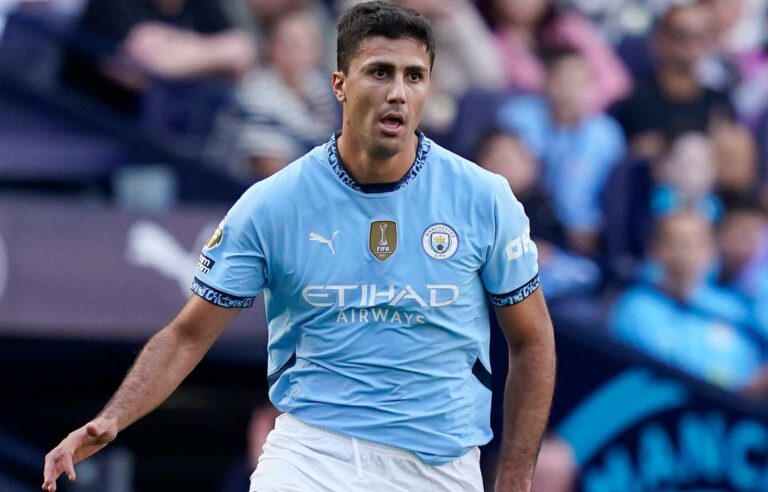As Spain charts its path toward World Cup glory, much attention has centered on the pivotal role of Rodri, whose influence extends far beyond his performances at Manchester City. The midfielder’s ability to dictate play and provide stability in the heart of the pitch has become essential to La Roja’s ambitions on the global stage. With Spain’s hopes resting heavily on his shoulders, Rodri emerges not just as a key figure for his club but as the linchpin in the national team’s quest for international success.
Rodri’s Pivotal Role in Spain’s Midfield Dynamics
Rodri stands as the linchpin in Spain’s complex midfield machinery, his presence transcending club commitments and emerging as a national imperative. Tasked with orchestrating the flow between defense and attack, his ability to read the game and execute precise passes under pressure offers La Roja the stability and creativity essential for international success. While critics often fixate on his contributions-or perceived shortcomings-at Manchester City, it is his command within Spain’s midfield that truly defines his value on the global stage.
Spain’s tactical setup revolves around Rodri’s capacity to disrupt opposing advances and launch calculated counters. His work rate and positional intelligence enable teammates to exploit spaces and maintain high possession rates. The below table highlights his key midfield metrics in recent international fixtures, demonstrating why Spain’s World Cup ambitions hinge on his form and fitness.
| Metric | Average per Game | Spain Rank |
|---|---|---|
| Pass Completion | 92% | 1st |
| Interceptions | 3.8 | 2nd |
| Key Passes | 1.7 | 3rd |
| Tackles Won | 4.2 | 1st |
- Strategic Pivot: Dictates tempo and transitions smoothly between phases.
- Defensive Shield: Breaks down opposition plays before they become threats.
- Creative Outlet: Initiates attacks with incisive passing vision.
Analyzing the Risks of Overdependence on a Single Playmaker
Spain’s reliance on Rodri as a central pivot has become a double-edged sword. While his vision and passing accuracy provide the team with structure and control, the burden placed upon his shoulders can create vulnerability, especially when opponents focus their defensive efforts on neutralizing him. Without Rodri’s orchestration, Spain risks losing fluidity in transitions, leading to a noticeable drop in creativity and tempo. This dependence not only limits tactical flexibility but also magnifies the potential impact of injuries or fatigue during crucial moments in the tournament.
Key risks of overdependence on Rodri include:
- Predictability in build-up play, making it easier for opponents to disrupt Spain’s rhythm.
- Heightened pressure on Rodri to perform consistently at peak levels.
- Limited alternative pathways for ball progression when he is tightly marked or out of form.
| Risk Factor | Impact | Mitigation |
|---|---|---|
| Defensive Targeting | Slows down possession and disrupts flow | Introduce flexible midfield rotations |
| Physical Fatigue | Risk of decreased performance in later stages | Utilize squad depth for strategic rest |
| Injury Risk | Potential tactical disarray | Develop contingency plans with secondary creators |
Strategic Solutions to Diversify Spain’s Creative Options
To challenge traditional playmaking and reduce Spain’s heavy reliance on Rodri, coaches must explore multidimensional tactics that bring new life to offensive strategies. Incorporating midfielders with diverse skill sets can enhance the team’s unpredictability, stretching opposing defenses and creating more scoring opportunities. Young talents like Pedri and Gavi offer glimpses of creative versatility, but a broader pool of players trained to orchestrate attacks could be pivotal for Spain’s progression on the world stage.
Several strategic solutions include:
- Rotational midfield roles that empower more than one player with playmaking duties to maintain fluidity and creativity in the center of the pitch.
- Enhanced wing play development, encouraging full-backs and wingers to contribute more decisively in the final third, thereby diversifying threat sources.
- Quick transitional football to exploit counter-attacking moments, reducing pressure on the midfield and forcing opponents to adjust defensively.
| Strategy | Potential Benefit | Key Players |
|---|---|---|
| Rotational Midfield Roles | Maintains creative flow, reduces predictability | Rodri, Pedri, Gavi |
| Wing Play Development | Expands attacking width and goal-scoring chances | Azpilicueta, Torres |
| Quick Transitional Football | Exploits counter-attacks, disrupts defensive set-ups | Ferran Torres, Dani Olmo |
The Conclusion
As Spain looks ahead to the World Cup, the burden on Rodri extends far beyond his club responsibilities at Manchester City. His ability to orchestrate play and maintain balance in midfield will be crucial for La Roja’s ambitions on football’s biggest stage. With the eyes of a nation upon him, Rodri’s performances could well determine whether Spain advances beyond the group stages or falls short of their lofty expectations. Ultimately, the responsibility he carries underscores a broader challenge for Spanish football-relying on a single linchpin to drive success, both at club and international levels.




